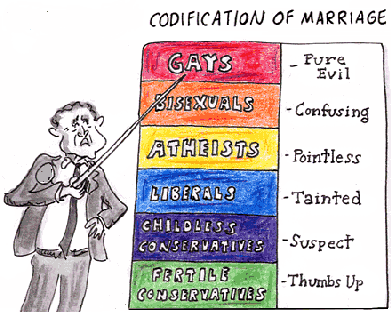Laws that criminalise same sex intimacy are making a mockery of our democracies.
Published on April 30, 2011 at 10:08 AM by FACE OF MALAWI

Like many others around the world, I was elated when I heard that Steven Monjeza and Tiwonge Chimbalanga were to be released from their 14 year prison sentence following a pardon by Malawian President, wa Mutharika. According to most reports, the President was finally persuaded to pardon the couple after a “conversation” with UN Secretary General, Ban Ki Moon.
According to a member of the U.N. delegation who spoke to the Times but asked to remain anonymous, “The secretary general told the president rather strongly that the current controversy was having a negative effect on Malawi’s reputation and obscuring the progress it had made in other spheres.
However, from President wa Mutharika’s statement it is evident that the decision was a reluctant one and he made it very clear that he remained steadfast in his belief that the court’s ruling was the right one.
“I have decided that with effect from today, they are pardoned and they will be released,” These boys committed a crime against our culture, our religion and our laws,” said the Malawi President…..“However, as the head of state I hereby pardon them and therefore ask for their immediate release with no conditions.”… “I have done this on humanitarian grounds but this does not mean that I support this.”
The decision to pardon rather than allow the Malawian legal process to take it’s own course in the matter raises concerns about the” autonomy and sovereignty” of African states. How can we claim justice has been done when the law used to convict the couple has not been successfully challenged? On the other hand how can we not cheer and feel relieved that Steven and Tiwonge are free no matter what the circumstances? Human Right’s lawyer, Sibongile Ndashe has to reconcile the nature of the pardon which was given under the threat of denial of aid by western powers; the culpability of the west in the making of the law; and her own personal feelings of joy at the decision.
Why is this law the law?
Wa Mutharika’s decision to pardon Steven Monjeza and Tiwonge Chimbalanga will no doubt evoke a mixed response from those who see this as a triumph of human rights and those who see his decision as succumbing to international pressure and donor coercion. Others have already asked what is the meaning of this for the rule of law and independence of the judiciary when people who have been convicted in a court of law, using a valid law, are released because the voices seeking their release have more power and money. They argue after all, that Steven and Tiwonge were convicted in a court for violating the law and if there was dissatisfaction about the trial then Malawian courts should have been petitioned and the matter should have been dealt with in that fora.
Stepping outside of Malawi, questions are asked on why neo-imperialism is able to triumph in this manner long after the continent has struggled to free itself from the bonds of colonialism and imperialism.
Presidential pardons tend to undermine the rule of law, just like amnesties. It makes the law look uncertain. It makes the law look like whatever the donors and the international community say should be the law. I agree that it is imperialistic of the west to threaten to pull aid in order to have its demands met. There is a power imbalance and until steps are taken to correct this imbalance it does not matter what the ‘request’ is. The idea that someone can be “asked” to do something when no is not a real option is what makes the situation ugly. This just does not look good on the sovereignty and autonomy front.
Why do we keep on giving the west a basis to come in and threaten us with aid and make them look like they are here to save brown people from other brown people? Why do we allow the west to continue cleansing itself of its culpability for the conditions that they have made possible to thrive? Why is the west allowed to continue playing saviour here? Who is giving the west a right to intervene and get Tiwonge outside prison? It’s the laws that the legislature have left in the statute books. It’s the laws that are being used to persecute a group.
Laws that criminalise same sex intimacy are making a mockery of our democracies. Spending state resources to push for legislation that will give the west a basis to meddle in order to “help” is just weird. Not listening to civil society from across the continent because they don’t provide aid and jumping when the west calls is so not the leadership I’d like to see displayed. Spending scarce resources to arrest and prosecute a group of people for crimes that should not be crimes makes us all seem idle. I do care that we inherited these laws from the British. I also do care that we can’t even conceive of a conversation to start talking about what the continued existence of the laws represent without the need to duck and dive accusations of western norms, morals and values.
The existence of the laws legitimises the treatment of a group of human beings as sub-humans. They are unjust laws. Everyone who insists or applauds the state for upholding the rule of law for arrests and prosecutions of such crimes is an accomplice. Everyone who use the rhetoric that homosexuality is against the law is guilty of accepting unjust laws as a given. Those who want to hide behind a law that is unjust will be judged by history.
“A historian who finds excuses for such conduct by references to the supposed spirit of the times or by omission or by silence shows thereby that his account of events is not to be trusted. ” CLR James in The Black Jacobins.
In the ongoing dispute between Judge Richard Goldstone and Israel, Gary Young had this to say about Israel’s attack against Goldstone for his complicity with the apartheid regime:
“Goldstone’s claim that faced with a moral dilemma he thought it was better to fight from inside than not at all is inadequate. Not only did he uphold apartheid laws, he enforced them. This is not a question of 20:20 hindsight: many in a similar position at that time chose a more principled stand. Both morally and professionally he had other options, and he is compromised by not having taken them.”
The African Union has to be called upon to take a stand against homophobia because this backtracking just looks way too submissive whenever I see my leaders cowering to western pressure and failing to defend the ‘legitimate basis’ for the existence of such homophobic laws. It’s not the first time, this has happened before [See here and here]
Civil society is willing to stand, fight and resist all forms of imperialism including the negative consequences of globalisation throughout the developing and unfair trade agreements, among a whole range of things. So why does this act of blatant imperialism not make my sense of justice too uncomfortable today. Today, I find myself reading and re-reading my favourite Germaine Greer quote
“Freedom is fragile and must be protected. To sacrifice it, even as a temporary measure, is to betray it.”
I can’t somehow manage to reconcile it with what happened today and how I feel about it. Tiwonge and Steven get to go home because wa Mutharika betrayed Malawi’s freedom. It’s a temporary measure I am willing to live with, and yeah even happy about.
I have been going through the African Charter on Human and Peoples’ rights and the African Union Constitutive Act and I can safely say homophobia is not a value worth Africa’s freedom. Repealing these laws will not do violence to the spirit of these documents, if anything, they’ll be enhanced. It’s so not worth it.
I end with the preamble to the AU constitutive act
Inspired by the noble ideals which guided the founding fathers of our Continental Organization and generations of Pan-Africanists in their determination to promote unity, solidarity, cohesion and cooperation among the peoples of Africa and African States;
Considering the principles and objectives stated in the Charter of the Organization of African Unity and the Treaty establishing the African Economic Community;
Recalling the heroic struggles waged by our peoples and our countries for political independence, human dignity and economic emancipation;
Considering that since its inception, the Organization of African Unity has played a determining and invaluable role in the liberation of the continent, the affirmation of a common identity and the process of attainment of the unity of our Continent and has provided a unique framework for our collective action in Africa and in our relations with the rest of the world;
Determined to take up the multifaceted challenges that confront our continent and peoples in the light of the social, economic and political changes taking place in the world;
Convinced of the need to accelerate the process of implementing the Treaty establishing the African Economic Community in order to promote the socio-economic development of Africa and to face more effectively the challenges posed by globalization;
Guided by our common vision of a united and strong Africa and by the need to build a partnership between governments and all segments of civil society, in particular women, youth and the private sector in order to strengthen solidarity and cohesion among our peoples;
Conscious of the fact that the scourge of conflicts in Africa constitutes a major impediment to the socio-economic development of the continent and of the need to promote peace, security and stability as a prerequisite for the implementation of our development and integration agenda;
Determined to promote and protect human and peoples’ rights, consolidate democratic institutions and culture, and to ensure good governance and the rule of law;
Further determined to take all necessary measures to strengthen our common institutions and provide them with the necessary powers and resources to enable them discharge their respective mandates effectively;
Recalling the Declaration which we adopted at the Fourth Extraordinary Session of our Assembly in Sirte, the Great Socialist People’s Libyan Arab Jamahiriya, on 9.9. 99, in which we decided to establish an African Union, in conformity with the ultimate objectives of the Charter of our Continental Organization and the Treaty establishing the African Economic Community;
by Sokari in Human Rights, LGBTIQ


